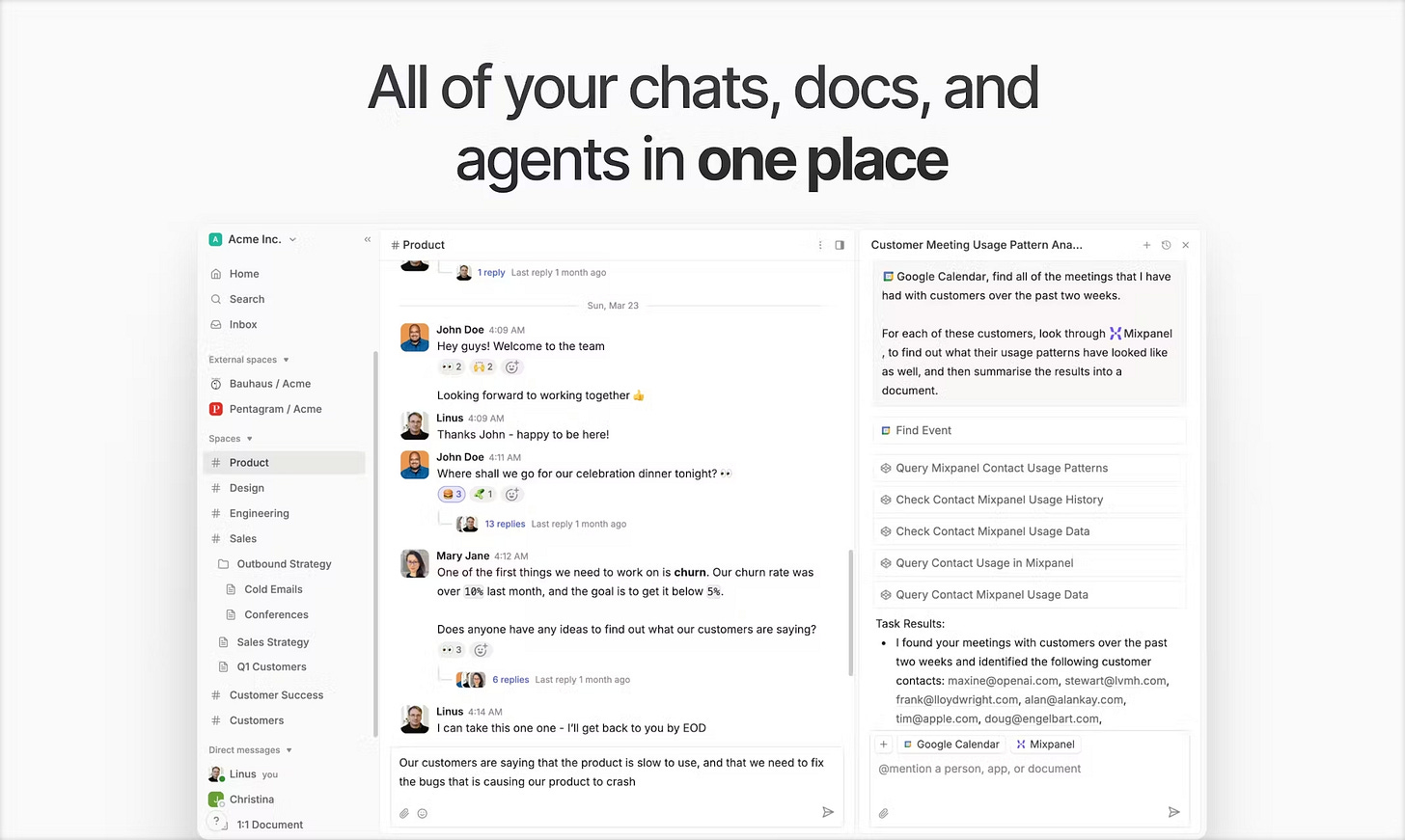Next Gen Claude Models | Weekly Edition
PLUS HOT AI Tools & Tutorials
Hey there! Welcome to your weekly AI catch-up.
Big drops this week: Anthropic’s new Claude 4 models are crushing coding and step-by-step reasoning, OpenAI’s teaming up with Jony Ive on a screen-free AI gadget, and Mistral’s Devstral is bringing open-source coding AI to your laptop. OpenAI’s also building a mega data center in the UAE, while Meta’s boosting its AI power with solar (and maybe nuclear). Plus, don’t miss this week’s guides, meme, and tweet!
Let’s dive in!
This Creators’ AI Edition:
Featured Materials 🎟️
News of the week 🌍
Useful tools ⚒️
Weekly Guides 📕
AI Meme of the Week 🤡
AI Tweet of the Week 🐦
(Bonus) Materials 🎁
Featured Materials 🎟️
Introducing Claude 4
Anthropic just dropped Claude Opus 4 and Sonnet 4, leveling up their AI game with models that can think things through step-by-step, use external tools, and handle some pretty serious coding independently. The new “hybrid” modes let you pick between lightning-fast answers or deeper ones.
Plus, you get to see the model’s reasoning in action. Opus 4 scored an impressive 72.5% on SWE-bench and can code for hours without a break, while Sonnet 4 replaces the older Sonnet 3.7 with even better performance. Thanks to the new Claude Code extensions, we’re talking parallel tool use, memory that sticks around across tasks, and seamless integration with IDEs. Anthropic has also ramped up its safety standards to ASL-3, locking things down to prevent any sketchy uses, especially around weapons.
All in all, with what they’re calling the “world’s best coding model,” Anthropic’s latest release is another reminder they’re still right at the front of the AI pack, especially as the field shifts toward smarter, more collaborative agent-style AI.
Details on Jony Ive’s ‘screen-free’ OpenAI gadget
New info just came out about OpenAI and Jony Ive’s new AI device, after OpenAI bought Ive’s startup io for $6.5 billion. CEO Sam Altman told employees this could be the biggest thing OpenAI has ever done, with plans to ship 100 million devices by late 2026. The device is meant to be a “third main gadget” alongside phones and laptops, always aware of what’s going on around you. Analyst Ming-Chi Kuo says it’s a little bigger than the AI Pin but still small and stylish, like an iPod Shuffle. You wear it around your neck, and it has cameras and microphones, but no screen. OpenAI is hoping that combining Ive’s design with their AI will finally make an AI device that people want to use, but it’s still not clear if people are ready to trust a gadget that’s always listening.
News of the week 🌍
Introducing Devstral | Open-source model for coding agents
French AI startup Mistral just teamed up with All Hands AI to launch Devstral, a new open-source coding model that beats much bigger models at software engineering tasks. Devstral outperforms other open-source and even some closed models on real coding problems, and it’s designed to handle whole codebases, edit files, and solve tough programming challenges. You can even run it on a Mac, and it’s free to use thanks to its open Apache 2.0 license. Mistral also says they’ll release a bigger coding model soon. This move shows Mistral is sticking to open-source after its last closed model, and they’re making sure powerful coding AI is available to everyone, not just the big tech companies.
OpenAI to Build Massive AI Data Center in UAE
OpenAI is working with Cisco, Oracle, and other big tech partners to build a huge new data center in Abu Dhabi as part of its Stargate project. The Stargate UAE center will provide a ton of computing power for AI, with 200 megawatts set to go online in 2026 and plans to eventually reach 1 gigawatt. OpenAI says this new data hub will serve countries within 2,000 miles and is the first step in its new program to help governments build their own AI, working closely with the U.S. The UAE will also be the first country to offer ChatGPT access to everyone nationwide.
Mistral released Document AI
Mistral has launched Document AI, an enterprise tool that can extract text from documents and images with over 99% accuracy while processing thousands of pages per minute.
The company highlights three main benefits: superior document accuracy that handles complex text, handwriting, tables, and images across languages; faster processing up to 2,000 pages per minute on a single GPU with low latency and predictable costs; and the ability to transform document operations at scale. By integrating OCR with Mistral’s AI, businesses can create flexible document workflows and make their archives instantly accessible, unlocking smarter, more efficient document management.
Meta Launches “Llama for Startups”
Meta just rolled out a new program called “Llama for Startups” to get more early-stage companies using its Llama AI models. U.S. startups with less than $10 million raised, at least one developer, and a focus on generative AI can apply by May 30 to get direct support from Meta’s Llama team and, in some cases, up to $6,000 per month for six months to help cover development costs. Meta says its experts will help these startups get going and unlock advanced ways to use Llama in their products. This push comes as Meta fights to stay ahead in the open-source AI race, despite some recent delays and controversies around its Llama models.
The company has big plans for its generative AI, predicting massive future revenue and investing billions in new data centers and infrastructure to keep its AI ambitions growing.
Meta Secures Massive Solar Power Deal to Meet Soaring AI Energy Demands
With AI driving up power demand, Meta just locked in a huge solar deal, securing 650 megawatts from new projects in Kansas and Texas to help fuel its data-hungry data centers. This is Meta’s fourth big solar agreement this year, pushing its total renewables to over 12 gigawatts, as the company aims to run its global data centers entirely on clean energy. Solar is especially attractive in places like Texas thanks to easy permits and lots of sun, but Meta’s also looking at nuclear power, inviting developers to pitch up to 4 gigawatts of new nuclear capacity in the U.S. As AI models like Llama 4 demand way more energy than their predecessors, Meta is racing to make sure it’s ready, betting big on both solar (which comes online fast) and nuclear (for the long haul) to keep its AI ambitions powered up.
Useful tools ⚒️
Algebras AI -Translate apps with AI, no proofreading
Amie - AI Meeting Notetaker
Cua - Docker for computer-use agents
QualGent AI- AI Mobile App QA Tester
Den - Multiplayer AI agent builder
Den is Slack/Notion, fully rebuilt for AI agents. It gives you one place for all your chats, docs, and agents.
Weekly Guides 📕
Build a Terminal-Based Notion Agent with MCP
Using Codex for Non Technical Users
Practices Guide for Securing AI Data
Guide to Using the Responses API's MCP Tool
Build a Qwen 3 Local RAG Reasoning Agent
AI Meme of the Week 🤡
Do you do psychologist sessions with ChatGPT?
Here are useful and interesting prompts: ChatGPT Will Be Your Doctor?
AI Tweet of the Week 🐦
Do you think there's anything to worry about?
(Bonus) Materials 🎁
AI learns how vision and sound are connected, without human intervention











